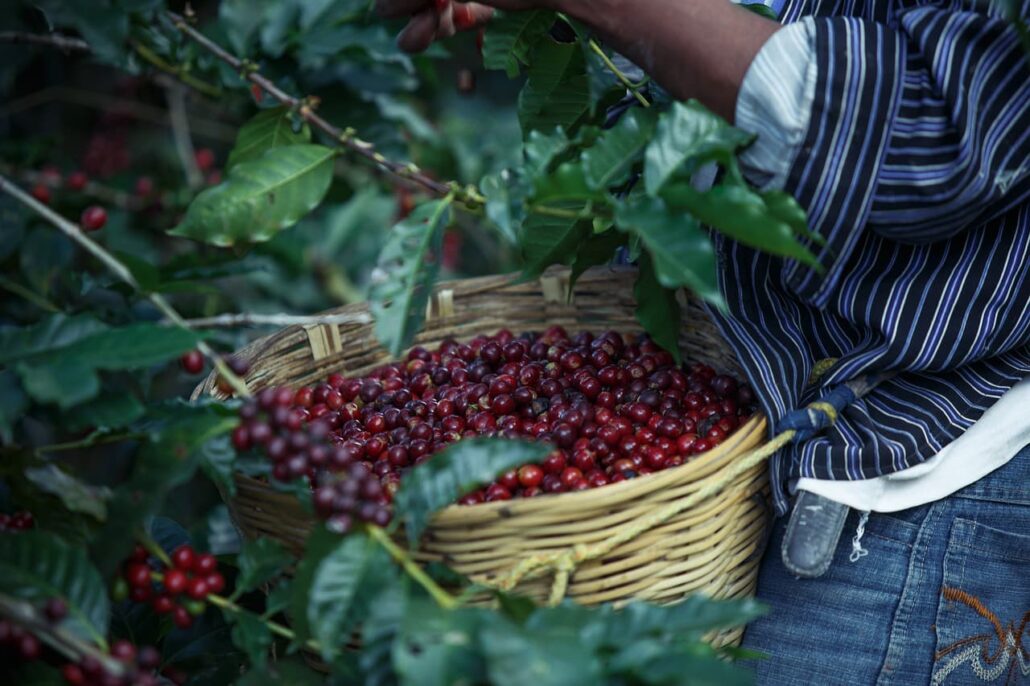
In recent years, Sri Lankan coffee farmers have embraced various innovations to enhance the quality and sustainability of their coffee. These innovations include adopting organic farming practices, integrating shade-grown coffee techniques, and utilizing advanced irrigation systems.
“Implementing organic farming methods not only improves the quality of coffee but also ensures environmental sustainability,” says agronomist Dr. Anura Perera.
Shade-grown coffee, where coffee plants are cultivated under a canopy of trees, helps maintain biodiversity and provides a habitat for wildlife. This method also enhances the flavor profile of the coffee by allowing beans to mature more slowly.
Role of Cooperatives in Coffee Production
Cooperatives play a crucial role in supporting small-scale coffee farmers in Sri Lanka. These organizations provide resources, training, and market access, enabling farmers to improve their yields and income.
“Cooperatives empower farmers by offering collective bargaining power and access to better resources,” explains cooperative manager Priyantha Kumara.
Through cooperatives, farmers can share knowledge and best practices, participate in bulk purchasing of inputs, and benefit from joint marketing efforts. This collaborative approach helps smallholders compete in the global market and ensures fair prices for their produce.
Coffee Tourism: A Growing Trend
Coffee tourism is emerging as a popular trend in Sri Lanka, attracting both domestic and international visitors. Coffee plantations offer guided tours, allowing tourists to learn about the coffee cultivation process, from planting to harvesting and processing.
“Coffee tourism provides an immersive experience, connecting visitors with the rich history and culture of Sri Lankan coffee,” says tourism expert Geetha Fernando.
These tours often include coffee tasting sessions, where visitors can sample different coffee varieties and learn about the distinct characteristics of Sri Lankan coffee. Coffee tourism not only promotes local coffee but also supports rural economies by generating additional income for farmers and related businesses.
The Art of Coffee Roasting
Roasting is a critical step in coffee production that significantly influences the flavor and aroma of the final product. Sri Lankan coffee roasters are gaining recognition for their expertise and dedication to quality.
“Mastering the art of coffee roasting requires a deep understanding of the beans and meticulous attention to detail,” notes coffee roaster Arjuna Wickramasinghe.
Roasters experiment with different roasting profiles to bring out the unique flavors of Sri Lankan coffee beans. This process involves carefully controlling temperature and time to achieve the desired balance of acidity, sweetness, and bitterness.
Coffee and Social Enterprises
Social enterprises are leveraging the power of coffee to drive social change in Sri Lanka. These organizations focus on ethical sourcing, fair trade practices, and community development, ensuring that the benefits of coffee production extend to the entire community.
“Social enterprises in the coffee industry prioritize people and planet over profit, creating positive social impact,” says social entrepreneur Chathura Weeraratne.
By investing in education, healthcare, and infrastructure, these enterprises help improve the living standards of coffee-farming communities. They also promote gender equality by empowering women farmers and ensuring their participation in decision-making processes.
The Future of Sri Lankan Coffee
Looking ahead, the future of Sri Lankan coffee appears promising, with ongoing efforts to enhance quality, sustainability, and market presence. Research and development initiatives focus on improving coffee varieties, disease resistance, and climate resilience.
“Continuous innovation and research are essential for the growth and sustainability of Sri Lankan coffee,” emphasizes agricultural scientist Dr. Ruwan Wickrama.
The government, private sector, and international partners are collaborating to develop strategies that support the long-term viability of the coffee industry. These efforts aim to position Sri Lankan coffee as a premium product in the global market, attracting discerning consumers who value quality and sustainability.
The Cultural Revival of Coffee in Sri Lanka
The revival of Sri Lankan coffee culture goes beyond economic and environmental aspects; it is also a cultural renaissance. Young entrepreneurs and coffee enthusiasts are rediscovering traditional coffee recipes and brewing methods, blending them with modern trends.
“Reviving traditional coffee practices connects us with our heritage and enriches our contemporary coffee culture,” says coffee historian Nalini Silva.
Coffee festivals and events are becoming increasingly popular, celebrating the diversity and richness of Sri Lankan coffee. These gatherings provide platforms for coffee growers, roasters, and consumers to interact, share knowledge, and celebrate their passion for coffee.
Sri Lankan coffee, with its rich history and cultural significance, is experiencing a vibrant revival. From the early days of colonial coffee plantations to the modern resurgence driven by quality and sustainability, Sri Lankan coffee continues to evolve. Through innovations in farming, the support of cooperatives, the rise of coffee tourism, and the dedication of social enterprises, Sri Lankan coffee is reclaiming its place on the global stage.
“Sri Lankan coffee represents a blend of tradition and innovation, offering a unique and enriching experience for all who appreciate its journey,” concludes coffee connoisseur Rohan Perera. As the island nation continues to cultivate and celebrate its coffee heritage, it not only honors its past but also builds a sustainable and prosperous future for its coffee-growing communities.


